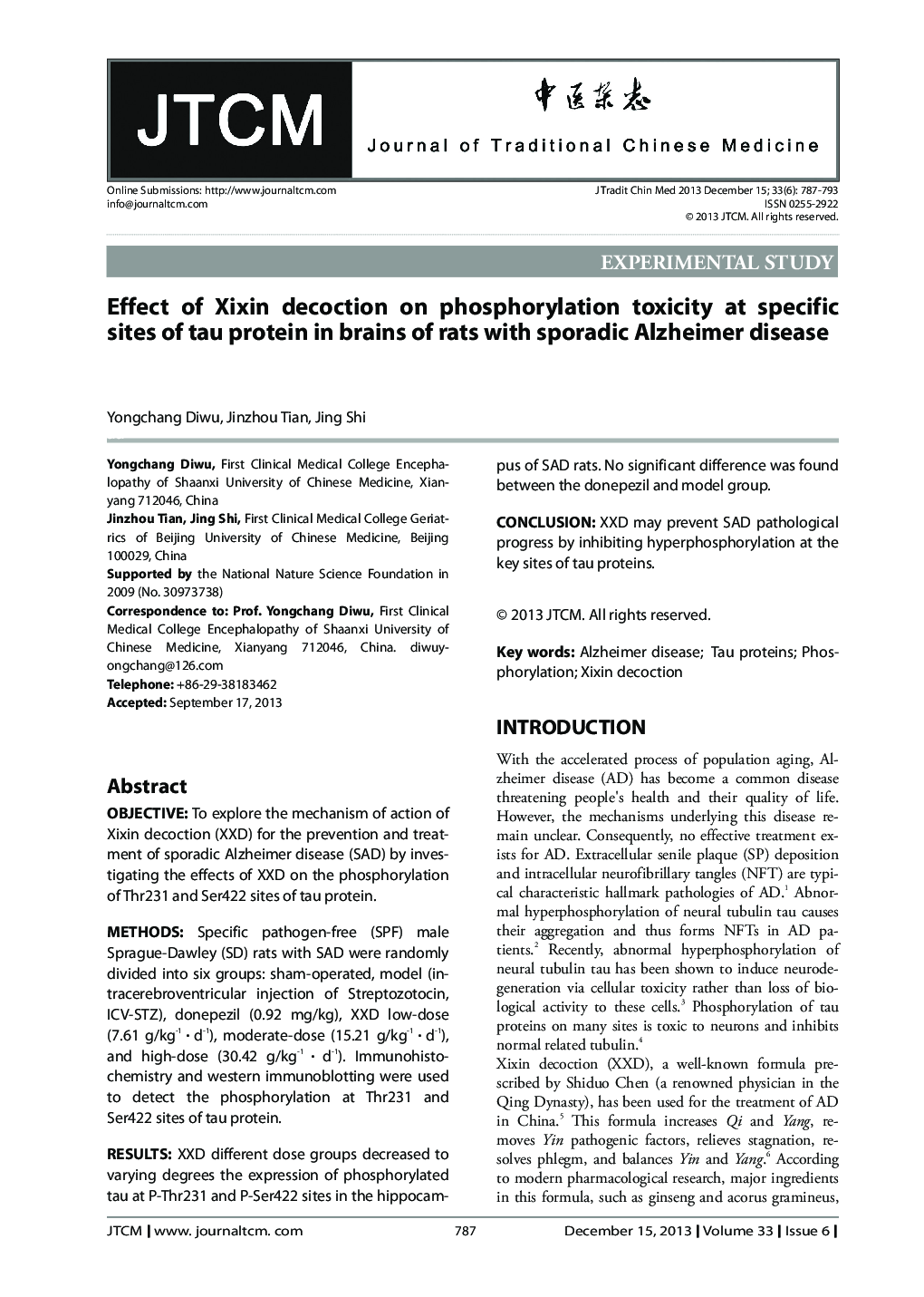| Article ID | Journal | Published Year | Pages | File Type |
|---|---|---|---|---|
| 4201326 | Journal of Traditional Chinese Medicine | 2013 | 7 Pages |
ObjectiveTo explore the mechanism of action of Xixin decoction (XXD) for the prevention and treatment of sporadic Alzheimer disease (SAD) by investigating the effects of XXD on the phosphorylation of Thr231 and Ser422 sites of tau protein.MethodsSpecific pathogen-free (SPF) male Sprague-Dawley (SD) rats with SAD were randomly divided into six groups: sham-operated, model (intracerebroventricular injection of Streptozotocin, ICV-STZ), donepezil (0.92 mg/kg), XXD low-dose (7.61 g/kg−1 · d−1), moderate-dose (15.21 g/kg−1 · d−1), and high-dose (30.42 g/kg−1 · d−1). Immunohistochemistry and western immunoblotting were used to detect the phosphorylation at Thr231 and Ser422 sites of tau protein.ResultsXXD different dose groups decreased to varying degrees the expression of phosphorylated tau at P-Thr231 and P-Ser422 sites in the hippocampus of SAD rats. No significant difference was found between the donepezil and model group.ConclusionXXD may prevent SAD pathological progress by inhibiting hyperphosphorylation at the key sites of tau proteins.
